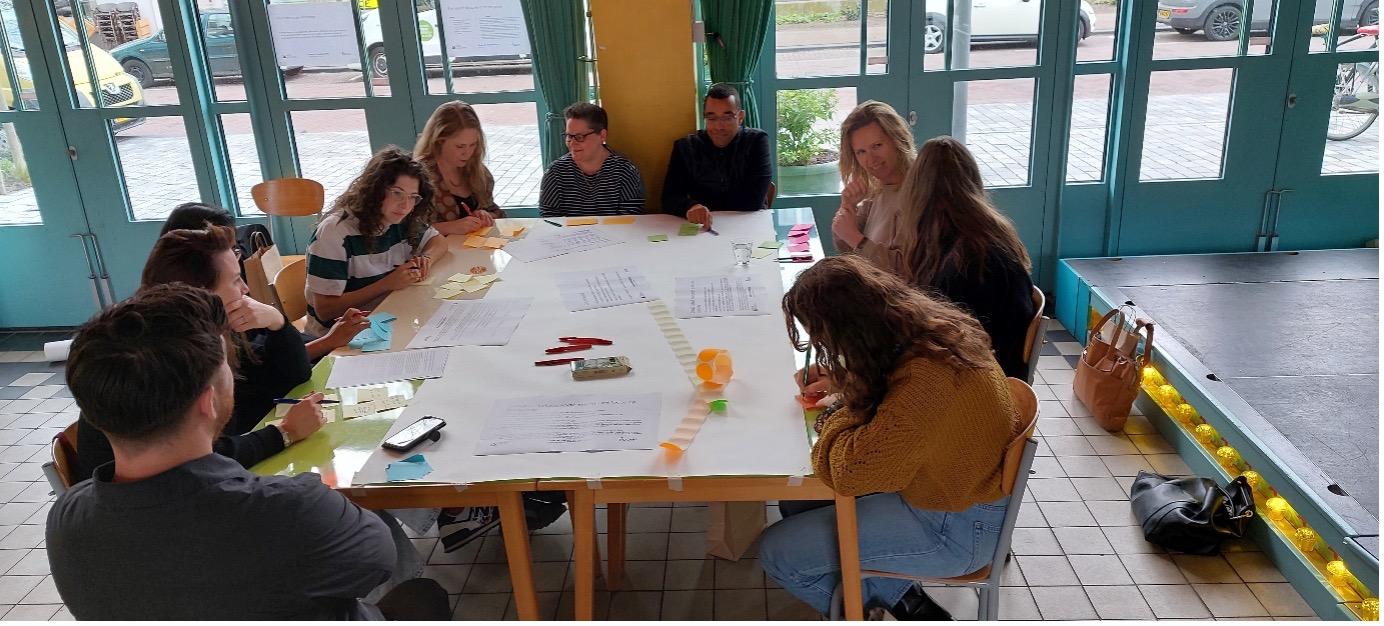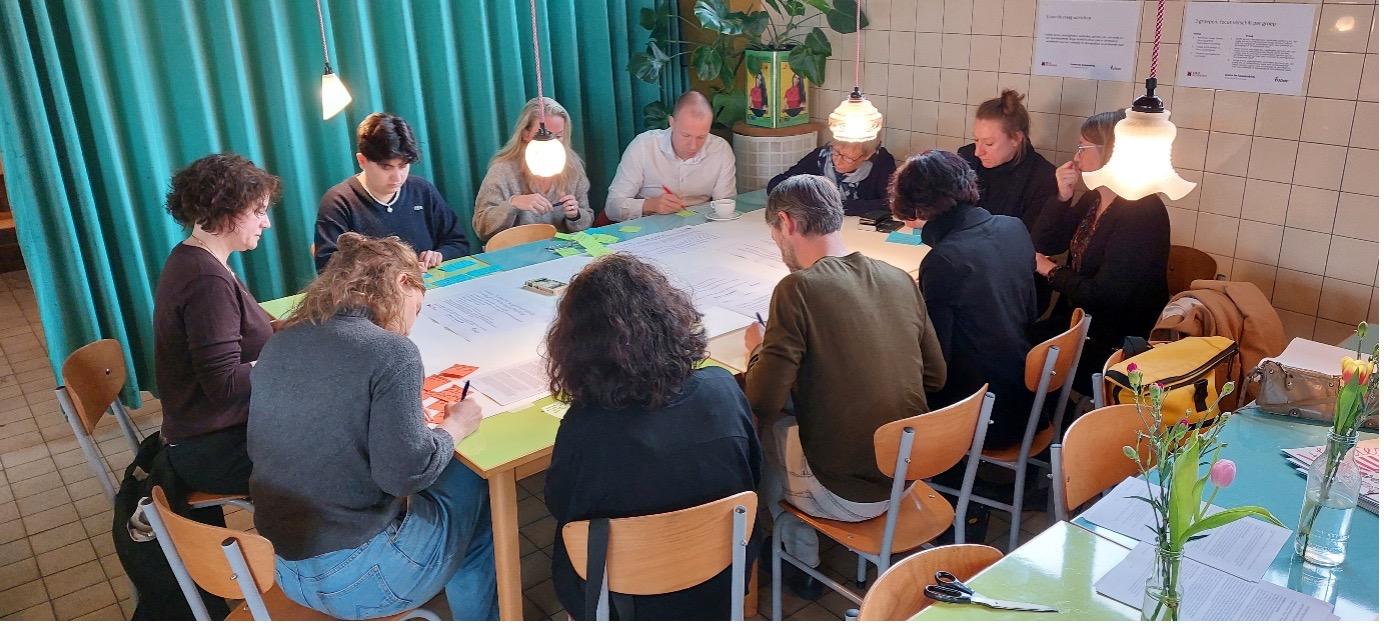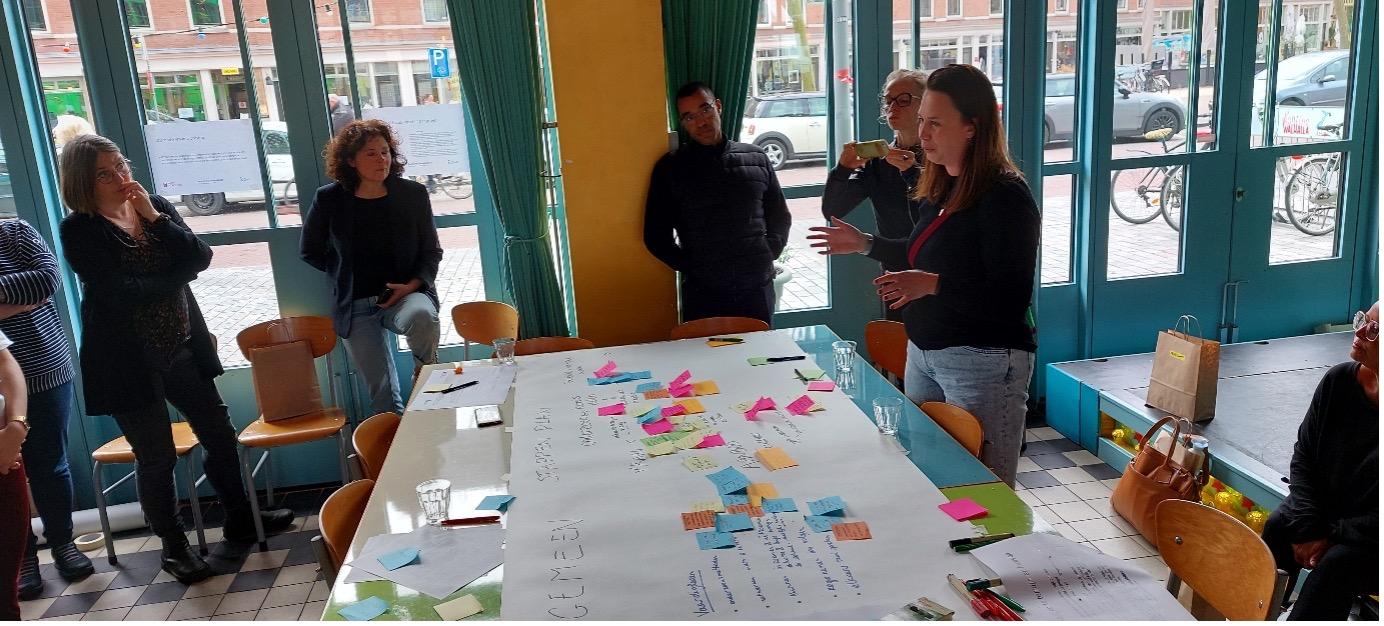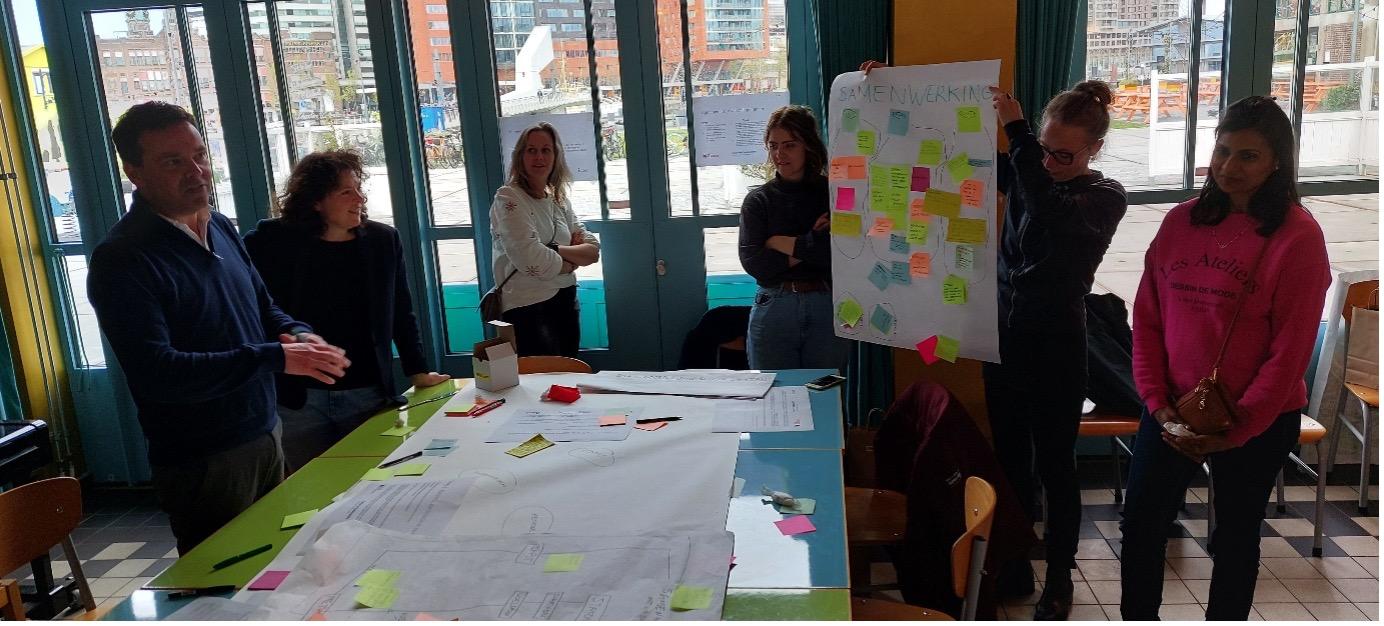A workshop about unknown approaches for urban sustainability. To support various urban professionals in effective collaboration, LDE CfS has partnered with the Veldacademie in delivering a course that develops knowledge, skills and tools for working in diverse teams of urban professionals on integrated urban development. A stand-alone workshop in April was held to test a tool – concept mapping - that can be used in the course and that can also serve as a research method to ‘measure’ what the learning effect of the course is. This workshop was facilitated by a team from LDE CfS (Julia Schasfoort, Renate Klaassen en Saskia Ruijsink) and the Veldacademie (Minke Themans and Ruth Höppner) and the workshop participants were a team of around 30 colleagues of the Culture Department of the municipality of Rotterdam.
Are we aware of the knowledge, skills and tools that we use in addressing urban sustainability challenges?
Whether you are a student, researcher, professional or active in any other role and you are addressing an urban sustainability challenge it is likely that you approach this in a way that is ‘typical’ for your background. You might start with reading more about the topic, in professional or academic literature, you might start by talking to experts, or people who are (in)directly involved. Or you have a certain method for developing and testing solutions. When we work with people with a similar background, we might recognize ways of addressing challenges and we might be exposed to new ideas and approaches when we are with others, who have very different ways of going about the same challenge. This diversity is important for being able to deal with the increasingly complex urban sustainability challenges, such as the shortage in housing stock, climate change, social inequality and poverty, mobility, health, and so on. We need knowledge, skills and tools from a wide range of professional and scientific disciplines and collaboration of the scientific community and governments, citizens, corporates and other stakeholders. But how can we make sure that we use our disciplinary knowledge to its full potential and at the same time enable ourselves to work with others across disciplines?
To support various urban professionals in collaborating effectively, LDE CfS has partnered with the Veldacademie in delivering a course that develops their knowledge, skills and tools for working in diverse teams of urban professionals on integrated urban development. A stand-alone workshop was held in April to test a tool – concept mapping - that can be used in the course and that can also serve as a research method to ‘measure’ what the learning effect of the course is. This workshop was facilitated by a team from LDE CfS (Julia Schasfoort, Renate Klaassen en Saskia Ruijsink) and the Veldacademie (Minke Themans and Ruth Höppner) and the workshop participants were a team of around 30 colleagues of the Culture Department of the municipality of Rotterdam.
What is concept mapping?
A concept map is a visualisation of concepts that include the knowledge, skills, tools and steps that you use to solve a problem or address a challenge. It is not to be mistaken with a mind map, which is typically a non-hierarchical organisation of concepts. A concept map is a diagram with hierarchy and a logic in sequencing. The relationships between concepts and ideas are made visible. Ideas are drawn as circles or blocks, so-called nodes, which are structured hierarchically and are connected by means of arrows or lines. These lines can be labelled with connecting words and sentences to help clarify the connections between the nodes.
How can concept mapping be useful for professionals?
Different professionals have different frames of reference. They have acquired specific knowledge within their sector through their education, and once they start working with other professionals. They gain new skills and knowledge specific to the organisation and the team within which they operate. Together this creates a specific framework that is used to tackle tasks at work. This framework often remains implicit, even though it has a large impact on the way you approach tasks and how you find solutions to problems. The concept map helps to make these underlying processes explicit. When you apply this within a department or team a concept map can be used as a starting point for further discussion and development of the department’s methods. It can also help to identify how the department can best contribute to processes of collaboration across departments.
The concept mapping workshop
The workshop started off by introducing what concepts maps are and why it is useful to make them. Then the maps were made in three different groups of each around 10 staff members of the Culture Department of the municipality of Rotterdam; the groups were facilitated by the LDE CfS and Veldacademie teams. All concept maps related to the same overarching question: what knowledge, skills, methods, and partners are needed to formulate an overarching (long-term) cultural vision and strategy for a spatially and demographically changing city? This question is relevant since the city of Rotterdam increasingly develops its spatial visions and plans in close collaboration between the spatial planning and other departments, including the Culture Department. In addition to the general question, each group had a slightly more specific focus; 1) focus on the long-term and the city of Rotterdam as a whole, 2) focus on the short-term, at a local scale, and on a specific target group, 3) focus on participation and co-creation.
The concept mapping combined individual brainstorming with group discussion and brainstorming to identify concepts such as knowledge, skills, methods and partners. After this brainstorming phase the concepts were organized in sequence and hierarchy and relationships were drawn. The facilitators helped with this part of the process.



This resulted in 3 concept maps that were presented to the rest of the department.


It appeared challenging to develop a concept map; probably because we use knowledge and skills rather intuitively, especially when we are experienced in our work. While the knowledge came from the professionals who followed the workshop, the support of an external facilitator proved useful for organising the concepts.
Is concept mapping relevant for professionals who engage in collaboration processes?
One of the objectives behind this workshop was to answer the question “how can the Culture department get to know itself better and how can that be used as a basis to collaborate more effectively with others?”. The concept mapping exercise was insightful, but it also showed that it is not easy to make a rather abstract and analytical overview (concept map) of intuitive, natural, or instinctive processes. The workshop participants agreed that it is good to be aware of how they work since it helps to reflect on it, to improve it, and to share it with others. They found it challenging to use the concept mapping tool and shared that more familiarization with the tool itself would help to make better maps.
The workshop was an inspiring event and it was very insightful to work with this group of dedicated professionals. We have seen that learning more about our own frames of reference is important and that concept mapping is a useful tool for doing so. We see that professionals increasingly work across disciplines, departments and stakeholder groups, where they address a wide range of urban sustainability and liveability challenges collaboratively. It helps if we are more aware of the specific set of knowledge, skills, and tools that each of us brings to the table. We might also make our own concept map at LDE CfS one day!
Are you interested in this tool? Get in touch with Saskia Ruijsink, the coordinator of the LDE CfS Cities Hub.
